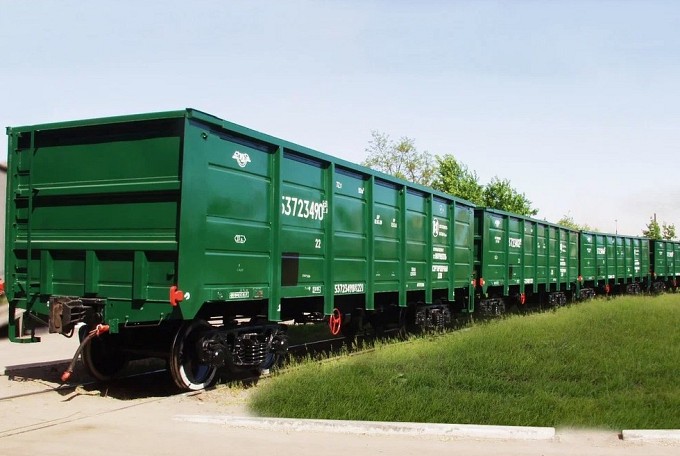
KTZ plans to increase tariffs for mainline railway network services for export transportation from January 1, 2025. As a result, the general railway tariff for grain is expected to increase by 30%, fertilizers by 25%, and other cargo by 18%. As a result, grain prices will increase by approximately 5%, the APK News agency reports.
“At the beginning of November, a meeting was held at the Atameken Chamber of Entrepreneurs with the participation of KTZ, government agencies, the business community and associations on the issue of establishing unified tariffs. The information from KTZ about the annual growth of regulated tariffs (MRT and LT) by 24% until 2026, including the increase from January 1, 2025 of the maximum tariff (within the maximum index of 3.0 to the tariff) for MRT for export transportation in order to bring the tariff level to payback, ”the Association of Kazakhstan Freight Rail Carriers reports.
According to the information provided, as a result, the general railway tariff for export transportation of coal is expected to increase by 37%, iron ore by 31%, grain by 30%, chemicals and soda by 17%, non-ferrous ore by 24%, construction materials by 6%, fertilizers by 25%, and other materials by 18%.
When increasing tariffs, the impact on prices will be 2-6% for coal, 1-8% for iron ore and within 5% for grain.
“As arguments in favor of increasing tariffs, the monopolist cited the instructions of the Head of State, as well as the level of debt burden that, in the opinion of KTZ, has developed due to low tariffs. Thus, in 2023, 73% of cargo was transported by KTZ below cost,” the Association reports.
According to the National Company's estimates, failure to increase tariffs will lead to a further increase in the debt burden from 2.9 trillion tenge in 2023 to 4.2 trillion in 2028.
However, market participants reported that the majority of participants did not support this decision, noting the following points among the counterarguments:
• the proposed increase in tariffs may lead to a loss of competitiveness for domestic exporters;
• obligations under the EAEU regarding unified tariffs should be revised taking into account the preservation of the competitiveness of the Kazakhstan market;
• it is necessary to conduct a more detailed justification of the tariff increase and assess the risks from the introduction of maximum price caps for tariffs for MZhS services when transporting export cargo.
At the same time, in response to one of the main reasons for the tariff increase - the need for investments in the maintenance and development of the railway network, the volume of which is currently estimated at 5.7 trillion tenge - the business community assured of its desire and readiness to cover part of this need. The only thing left to do is to develop mutually beneficial PPP terms.
As a result, decisions were made to once again discuss, analyze and send a letter to the Prime Minister outlining all the risks in implementing measures to increase tariffs.
"We will add on our own behalf that tariff increases are not a panacea and they will not save us. Radical measures are needed to reorganize the monopolist and allocate the Infrastructure Operator under the management of the Ministry of Transport, as well as to develop competition in the transportation services market. All of this has long been written into legislation and worked out in practice, however, for obvious reasons, it is being held back by the main beneficiary of the current system in the industry,” the Association reported.